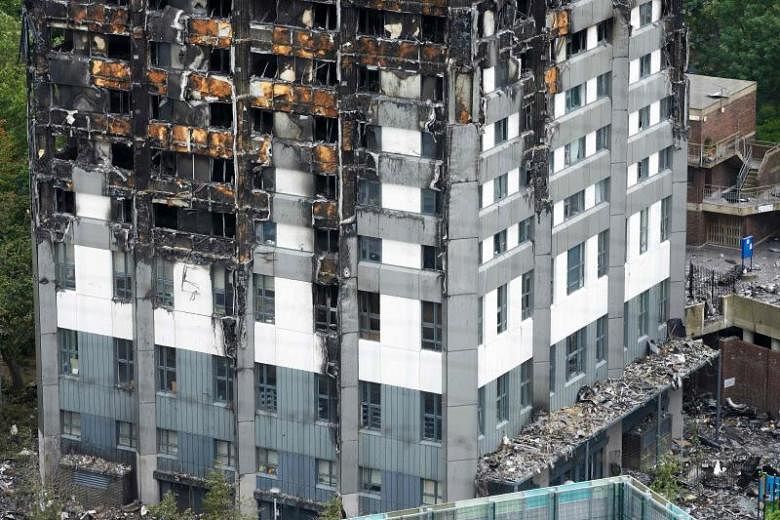LONDON • A formal government inquiry into the fire that engulfed Grenfell Tower in London, killing at least 79 people, has just begun.
But interviews with tenants, industry executives and fire safety engineers point to a gross failure of government oversight, a refusal to heed warnings from inside Britain and around the world, and a drive by successive governments from both major political parties to free businesses from the burden of safety regulations.
Promising to cut "red tape", business-friendly politicians evidently judged that cost concerns outweighed the risks of allowing flammable materials to be used in building facades.
Builders in Britain were allowed to wrap residential apartment towers - perhaps several hundred of them - from top to bottom in highly flammable materials, a practice forbidden in the United States and many European countries. And companies did not hesitate to supply the British market.
The facade installed last year at Grenfell Tower was made up of panels known as cladding and sold as Reynobond PE, consisting of two sheets of aluminium that sandwich a combustible core of polyethylene.
The facades are produced by US manufacturing giant Alcoa, which was renamed Arconic after a reorganisation last year. The company has marketed the facades in Britain for years, even as it adjusted its pitch elsewhere.
In other European countries, Arconic's sales materials explicitly instructed that "as soon as the building is higher than the firefighters' ladders, it has to be conceived with an incombustible material".
An Arconic website for British customers said only that such use "depends on local building codes".
For years, MPs here had written letters requesting new curbs on cladding, especially since the same flammable facades were blamed for fires elsewhere in Britain and also in France, the United Arab Emirates and Australia.
Yet, the British authorities resisted new rules. A top building regulator explained to a coroner in 2013 that requiring only non-combustible exteriors in residential towers "limits your choice of materials quite significantly".
Fire safety experts said the blaze on June 14 was a catastrophe that could have been avoided, if warnings had been heeded.
NYTIMES

